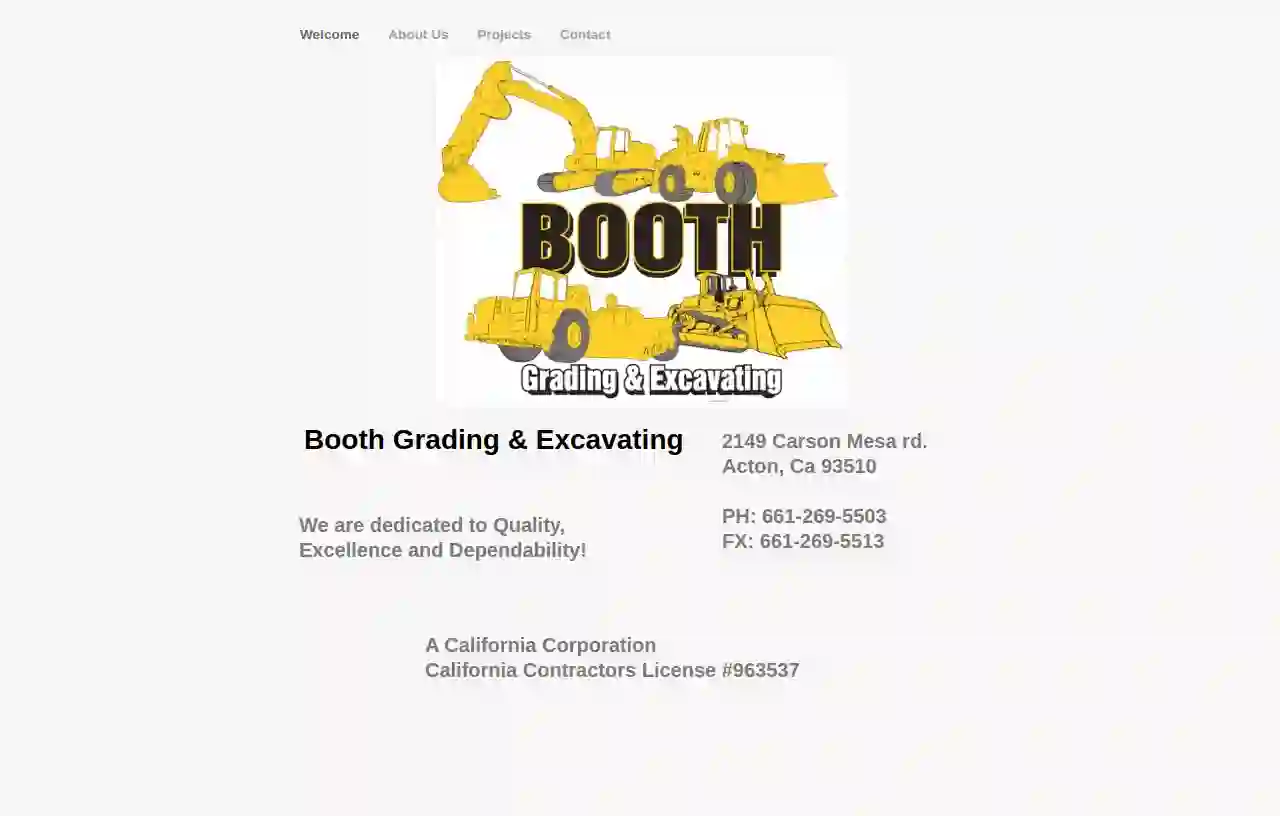Excavation Contractors Santa Clarita
Top Excavation Contractors Near Me in Santa Clarita
Get 3 FREE Excavation Services quotes for your project today! Compare profiles, reviews, accreditations, portfolio, etc... and choose the best service.

Sand Building Materials
4.422 reviewsSanta Clarita, CA, 16641 Sierra Highway, 91351, USAt Sand Building Materials, we're proud to have been serving the San Fernando Valley, Santa Clarita Valley, and San Gabriel Valley for over a decade. Our family-owned business has been providing top-notch masonry, landscaping, and building materials to homeowners, contractors, and builders alike. With a huge selection of products, including natural stone, pavers, sealers, decorative rock, sand, and gravel, we're your one-stop shop for all your construction needs. Our team of experts is dedicated to providing exceptional customer service, ensuring that every project is completed to the highest standards. Whether you're a seasoned contractor or a DIY enthusiast, we invite you to explore our website, visit one of our locations, or give us a call to learn more about how we can help bring your vision to life. Become a Preferred Contractor and receive referrals from us! We're hiring, so if you're passionate about the construction industry and want to join our team, check out our job openings. Contact us today to learn more about our products, services, and how we can help you achieve your construction goals.
- Services
- Why Us?
- Gallery
Get Quote- So
So Cal Contractors
1Santa Clarita, US- Services
- Why Us?
Get Quote - GC
GCSC - General Contractor Santa Clarita
51 reviewsSanta Clarita, US- Services
- Why Us?
Get Quote - Ad
Admiral Grading & Excavating, Inc.
1Santa Clarita, US- Services
- Why Us?
Get Quote - Ri
Rick Franklin Construction
52 reviewsSanta Clarita, US- Services
- Why Us?
Get Quote - Lo
Louis Todd Corporation
51 reviewsSanta Clarita, US- Services
- Why Us?
Get Quote 
Booth Grading & Excavating
53 reviews2149 Carson Mesa rd., Acton, 93510, USBooth Grading & Excavating A California Corporation California Contractors License #963537 Dedicated to Quality, Excellence and Dependability!
- Services
- Why Us?
- Gallery
Get Quote- AL
ALTS Bobcat & Excavator Services (with Operators)
1Santa Clarita, US- Services
- Why Us?
Get Quote - Le
Lee Construction
1Santa Clarita, US- Services
- Why Us?
Get Quote - WB
WBR Pipeline & Excavating
32 reviewsSanta Clarita, US- Services
- Why Us?
Get Quote
Over 21,512+ Excavation Contractors registered
Our excavation contractors operate in Santa Clarita and beyond!
ExcavationHQ has curated and vetted the Best Excavation Pros near Santa Clarita. Find a top & trustworthy pro today.
Frequently Asked Questions About Excavation Contractors
- Spring and Fall: Often considered favorable due to moderate temperatures and drier soil conditions.
- Summer: Can be suitable, but hot weather can make working conditions challenging and might require additional measures (shade, hydration) for workers.
- Winter: Excavation in winter can be more difficult due to frozen ground, snow, and potential delays caused by inclement weather. It might also require specialized equipment or techniques.
- Soil Type and Stability: Stable, cohesive soils allow for deeper excavations than loose or unstable soils.
- Groundwater Level: Excavations below the water table require dewatering techniques to manage water intrusion.
- Equipment and Resources: The size and capabilities of excavation equipment influence the achievable depth.
- Safety Regulations: OSHA and other safety regulations impose limitations on trench depths without proper shoring or sloping.
- Project Requirements: The purpose of the excavation (basement, pool, foundation) determines the necessary depth.
- Trench Collapses: Unstable trench walls can cave in, posing a severe risk to workers. Proper shoring and sloping are crucial safety measures.
- Utility Damage: Striking underground utilities (gas, water, electric) can cause leaks, explosions, or electrocution. Accurate utility locates and careful digging are essential.
- Falling Objects: Materials or equipment falling into excavations can injure workers. Securing work areas and using appropriate safety gear is vital.
- Equipment Accidents: Operating heavy machinery involves risks of rollovers, collisions, or mechanical failures. Trained operators and proper equipment maintenance are critical.
- Environmental Hazards: Excavated soil might contain hazardous materials (asbestos, lead). Proper testing and disposal procedures are necessary.
- Hauling to Designated Disposal Sites: Transporting excavated material to approved landfills or recycling centers.
- Recycling or Reuse: If suitable, some excavated soil might be recycled for other projects or reused on-site for landscaping or backfilling.
- Complying with Regulations: Adhering to local and environmental regulations for soil disposal to prevent contamination or illegal dumping.
What is the best time of year for excavation?
How deep can you excavate?
What are the risks associated with excavation?
How do you handle soil disposal after excavation?
What is the best time of year for excavation?
- Spring and Fall: Often considered favorable due to moderate temperatures and drier soil conditions.
- Summer: Can be suitable, but hot weather can make working conditions challenging and might require additional measures (shade, hydration) for workers.
- Winter: Excavation in winter can be more difficult due to frozen ground, snow, and potential delays caused by inclement weather. It might also require specialized equipment or techniques.
How deep can you excavate?
- Soil Type and Stability: Stable, cohesive soils allow for deeper excavations than loose or unstable soils.
- Groundwater Level: Excavations below the water table require dewatering techniques to manage water intrusion.
- Equipment and Resources: The size and capabilities of excavation equipment influence the achievable depth.
- Safety Regulations: OSHA and other safety regulations impose limitations on trench depths without proper shoring or sloping.
- Project Requirements: The purpose of the excavation (basement, pool, foundation) determines the necessary depth.
What are the risks associated with excavation?
- Trench Collapses: Unstable trench walls can cave in, posing a severe risk to workers. Proper shoring and sloping are crucial safety measures.
- Utility Damage: Striking underground utilities (gas, water, electric) can cause leaks, explosions, or electrocution. Accurate utility locates and careful digging are essential.
- Falling Objects: Materials or equipment falling into excavations can injure workers. Securing work areas and using appropriate safety gear is vital.
- Equipment Accidents: Operating heavy machinery involves risks of rollovers, collisions, or mechanical failures. Trained operators and proper equipment maintenance are critical.
- Environmental Hazards: Excavated soil might contain hazardous materials (asbestos, lead). Proper testing and disposal procedures are necessary.
How do you handle soil disposal after excavation?
- Hauling to Designated Disposal Sites: Transporting excavated material to approved landfills or recycling centers.
- Recycling or Reuse: If suitable, some excavated soil might be recycled for other projects or reused on-site for landscaping or backfilling.
- Complying with Regulations: Adhering to local and environmental regulations for soil disposal to prevent contamination or illegal dumping.